Do I need to pay?
In order not to torment you with a long wait, we immediately answer the question posed - yes, you need to pay.
The current housing code has an entire article dedicated to this type of payment. The article states that all owners of residential premises in apartment buildings are required to pay contributions for major home repairs. The payment amount is calculated as a fixed rate per square meter of total living space, multiplied by the number of square meters in the apartment.
The minimum fixed rate is determined by regional authorities on the basis of methodological recommendations of the Government of the Russian Federation. Regions, at their discretion, can change the amount of payment. This takes into account the characteristics of the territory, the technical characteristics of the apartment building, and other initial data.
Residents of an apartment building can also increase the minimum payment for major repairs if they deem it necessary. It is illegal to reduce the contribution amount.
Frequently asked questions from owners
- Will major repairs be carried out if the previously transferred funds to the FKR account are not enough? Yes, the work included in the plan will be completed even if there is insufficient funding from the owners. For their implementation, funds accumulated by the Federal Credit Fund in a consolidated account and bank credit lines are attracted. This will not change the amount of residents' contributions; repairs will be carried out on credit.
- Will the amounts spent by residents on general building repairs be counted if they were not included in the regional program? Partial or full offset of such expenses is possible only if they are included in the plan of the regional operator, or if there is a proven need for them to be carried out with adjustments to the program.
- Do I need to pay for major repairs, and what consequences may arise if contributions are not transferred to the Fund? If a debt arises for a period of more than 6 months, the regional operator has the right to recover funds from the debtor through the court. The consequences will depend on the size of the delay, the primacy of the violation and other factors.
- Since payments for major repairs are equated by law to payments for utility services, the conditions for claiming them are similar. The court can not only issue a ruling on debt compensation and penalties, but also seize the debtor’s property or temporarily restrict his travel outside the Russian Federation.
- The HOA did not enter into a separate agreement with the regional operator. Does this mean that there is no need to pay contributions to the FKR? No, that doesn't mean it. All homeowners of apartment buildings are required to pay contributions for major repairs.
Text: Svetlana Kuryleva
How does the system for collecting payments to the Capital Repair Fund work?
What exactly is this FKR? The full name is the non-profit organization “Capital Repair Fund”. This is a company that raises funds for major renovations of apartment buildings. The operating principle is as follows: for each house, the types of work related to major repairs and the deadlines for their completion are determined (for middle-aged houses, the start date for repairs can be delayed up to 15-20 years from the date of payment). All owners of residential premises in an apartment building pay contributions to this FKR as to a common pot. And then the fund alone decides which house, what type of repair and in what order will be carried out. Thus, the savings created by the residents will not necessarily be spent on the needs of their apartment building.

Despite some dissatisfaction on the part of the owners, there are also positive aspects to such deductions.
Advantages of transferring money to the capital repair fund:
- The FKR establishes the order of repairs and the list of houses to be financed, based on the technical condition of the apartment building. If you are the owner of an apartment in a Balzac-era building, then it makes sense to pay contributions to the common boiler. Most likely, your home will be among the first applicants for major renovations.
- We suggest that residents whose apartment buildings have fewer than 20 apartments think about this method of savings. With such a number, and taking into account the fact that there will definitely be a willful defaulter, it is unlikely that it will be possible to carry out a full-fledged overhaul from the accumulated funds in the coming decades.
Minuses:
- Complete lack of control over the expenditure of accrued funds;
- The Fund, at its discretion, determines the required type of capital repair;
- The Foundation independently selects the year in which major repairs will be carried out;
- As a private non-profit organization, it may cease to exist at any time.
Major repairs - to pay or not
Can residents of a high-rise building not pay for major repairs? Yes, for the first five years you don’t have to make contributions to the Fund or accumulate them in a special account at home.
But why are fees for major repairs mandatory in principle? The first thing to remember is the norms of the Housing Code. They have ceased to be optional, that is, they have become an obligation specifically in the matter of bills for major repairs. Thus, the answer to the question of whether it is worth paying attention to accruals and paying off the debt, paying current payments is decided in favor of the need to pay.
Citizens who do not pay receipts for major repairs may come under the scrutiny of the law enforcement system after a court decision to collect money from the Capital Repair Fund, the need to deduct penalties, and collect a court fee. Deliberate failure to comply with a court decision may result in prosecution under another article. This time it is the Criminal Code.
As a way out of the situation of paying payments for major repairs, you can offer payment in installments.
Are we, residents of apartment buildings, obligated to pay the costs for repairs already carried out according to the invoices issued? In this case, it is necessary to find out whether there was a meeting of residents and whether a decision was made on a specific type of repair. If this is the arbitrariness of the management company, then such costs can be transferred to it.
However, in both this case and those described above, it is likely that a lawsuit will have to be initiated.
There is no need to pay the fee legally only to a certain category of citizens. We'll talk about this a little below.
How is the amount of payment for major repairs determined?
Those who regularly pay bills for major repairs are wondering: is it necessary to pay for major repairs and in exactly this amount? The calculation of such payments is quite simple.
First, the government forms a minimum level according to the methodology and sets it for each year or several years in advance. This calculation is made taking into account national indicators of depreciation of the housing stock. The newer and more modern the housing stock, the less funds will be required for repairs. Gradually, such deductions will decrease until they reach the weighted average minimum.
In each specific house or region, the minimum rate is adjusted taking into account regional characteristics.
The highest tariff is for Moscow. It amounts to just over 18 rubles per square meter of apartment in 2020. Residents of the Moscow region and other federal entities receive receipts for major repairs that are an order of magnitude lower in terms of payment level.
Overhaul fee
Is it possible to avoid paying for major repairs that will be required in the future? The logic of those who do not pay this money to the Housing and Communal Services Reform Assistance Fund is very simple. They say: “If there’s a problem, we’ll collect money from everyone: the state will help a little, the local government will give a subsidy, the apartment owners will chip in. We will repair it for this money.” But this logic is outdated and will not work in reality. The first thing to object is that such a mechanism is not provided for by law. All funding for repairs is carried out taking into account government assistance through the Foundation.
Secondly, such payment as deductions for major repairs is required. Failure to pay it is a debt obligation. If the situation worsens, non-payments will be classified as malicious evasion of compliance with legislative requirements. And there it is not far from the court and enforcement of the decision.

In new buildings
Having received documents for a brand new apartment in a high-rise building, the owner of a comfortable home thinks that there is now no need to pay for future major repairs. Why and is it necessary to pay for major repairs if the house is completely new?
Yes, in this case you can wait. According to legislative norms, deferments in such payments may be given. But they can be postponed for no more than 5 years. During this period, the house becomes completely the property of the owners (including maintenance) and is therefore included in the regional building renovation program.
After the expiration of the five-year period (maybe earlier), the owner of an apartment in an apartment building must pay his mandatory portion of the contribution to the Capital Repair Fund. The size of contributions for major repairs is determined individually, for each house (or by region). The size of the contribution depends on the level of wear and tear, the materials used in construction that need to be restored according to regulations to extend their service life, and many other factors.
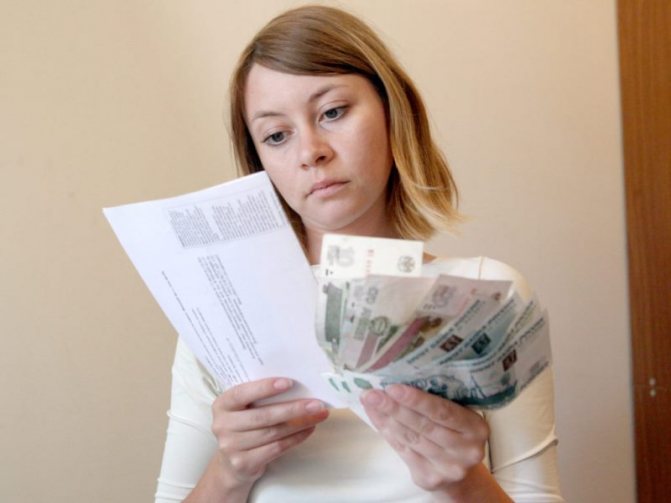
In houses from the times of the USSR
Owners of apartments in Soviet multi-storey buildings ask the question of how much payment for major repairs is required in their case. At the same time, they refer to legal norms, which do not specifically indicate that such a fee is necessary for this category of houses. Indeed, rent in the USSR did not include such payments from citizens. But it did not cover the costs of maintaining the house and utilities. It was simply partial compensation from citizens for the costs of public utilities.
The most important thing is that previously only the state was the owner of houses, and apartment residents were apartment tenants. The state itself paid for all restoration work. Now the apartments have become the private property of citizens. That is why the overhaul of an apartment building of any date of construction must be paid for. Ultimately, this is in the interests of the residents themselves.
A contribution for major repairs will help restore the structure of the house and even carry out repair work in emergency cases, if there are no necessary funds, if you have to involve federal structures and banking institutions.
The law has no exceptions for housing built before the formation of a separate Russian state. Thus, the Housing Code of the Russian Federation does not contain any exceptional standards for Soviet housing.
In private homes
Owners of multi-apartment private buildings make contributions to the Fund in any way permitted by law. This could be a transfer to a national or regional fund, or contributions to a personal overhaul fund for a specific house.
In both cases, residents pay no less than the minimum contribution for major repairs. But they are not obliged to pay more than the amount that was established as a mandatory deduction at their general meeting.
Let us remind you that residents of rural settlements are 100% exempt from paying the contribution for home restoration.
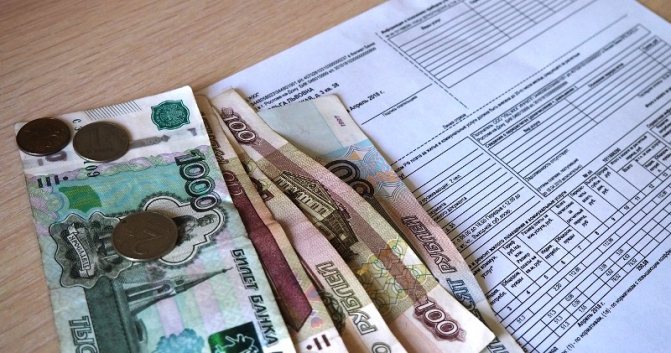
Benefits and subsidies for major repairs
Why pay for major repairs is already clear. The question now is about exceptions to the rules. Thus, the fee for major repairs does not apply to pensioners who are 80 years of age or older. And it doesn’t matter whether they live alone or with a pensioner of the same age.
Those who have a decision to demolish the house or alienate the land into state ownership also do not pay for the restoration of the house.
100% benefits are available to veterans of the Great Patriotic War and labor veterans, participants in the liquidation of the accident at the Chernobyl station, citizens who have the status of participants in the siege of Leningrad.
Large families and other categories of citizens, which are established by the regional legislation of the Russian Federation, do not have to pay monthly for major repairs.
Residents of rural areas do not pay for major repairs at all.
For citizens with disability status of groups 1 and 2, there is a discount of 50% of the established fee.
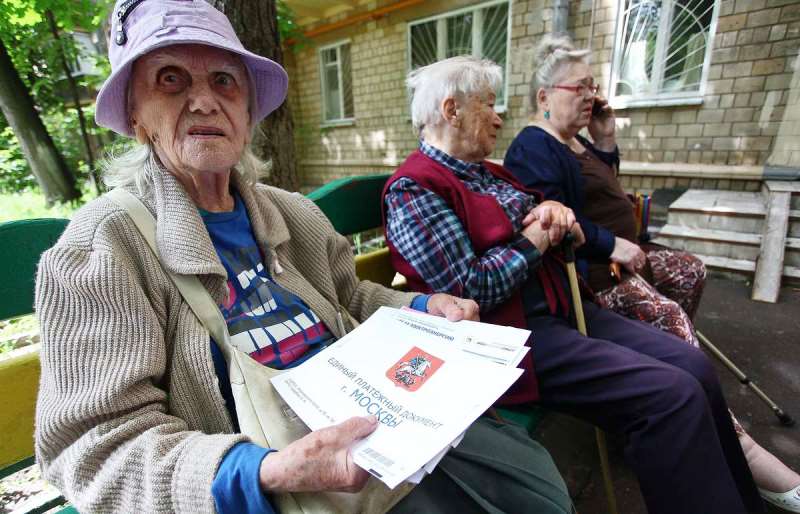
Penalties for non-payment of capital repairs
Responsibilities for paying contributions for major repairs fall directly on the owner of the apartment. If the court decision is in favor of the plaintiff, he will have to pay receipts for previous years and a penalty for their late payment. However, there are isolated cases when such penalties and such collection were carried out forcibly.
That is why everyone decides for themselves whether they need to pay these receipts. But in this case, liability for non-payment may come unexpectedly and become a major nuisance:
- seizure of property;
- ban on crossing the Russian border;
- forced execution of a court decision by selling part of the property.
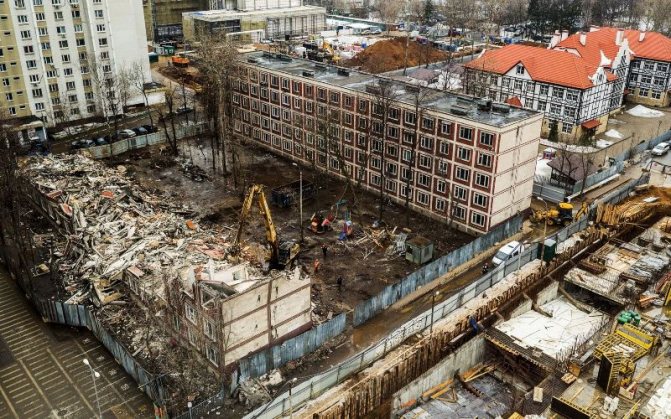
Alternative to the Capital Improvement Fund

For residents who do not agree with the financing procedure and decisions made by the capital repair fund, the law provides for the right to create their own account for crediting funds. These funds can only be used for the needs of major repairs of an apartment building.
Advantages of transferring money to a special account:
- In the case where your house was built relatively recently, and by and large does not need major repairs, there is little point in financing the renovation of other apartment buildings in the area.
- If your apartment building has a sufficient number of apartments to collect an impressive amount of money every month, you should also pay attention to creating a special account. At the same time, by the time the need for major repairs arises, the formed fund will contain enough money for any type of repair.
- You will also decide on the need for repairs yourself at a meeting of owners.
- A significant advantage is the owners’ complete control over the spending of funds from the account. You can be sure that every ruble will be spent to benefit your house.
Minuses:
- In order to create a special account, the owners must be responsible and proactive;
- Transferring funds at home from the Capital Repair Fund to a specialized account is a task that requires patience and ingenuity. According to various reviews, this procedure lasts from three months to two years;
- To transfer funds from the FKR to a special account, it is necessary to completely repay the existing payment arrears (and almost certainly everyone has one);
- Funds from a special account can be spent exclusively on work provided for by the very concept of “major repairs”;
- You must be prepared to accept responsibility for decisions about repairs and other actions.
What work is included in the established list for major repairs?

Overhaul of an apartment building is a construction and repair process that restores the original technical characteristics of a residential building or significantly improves them.
The overhaul program includes:
- Repairing or strengthening the foundation;
- Roof repair or replacement;
- Bringing the house's utilities into proper condition - water supply and sewerage, electrical wiring, heating systems, elevator facilities (if any);
- Repair or restoration of facades;
- Work related to the full functioning of balconies (repair, replacement, restoration);
- At the initiative of the owners, additional work can be carried out if the collection of funds exceeds the minimum established. Subjects of the Federation are also empowered to expand the list of capital works. For example, this list can include, for example, the installation of common house metering devices, or insulation of facades.
Now let's get to the most interesting part of the article. Over several years of fundraising for the capital improvement fund, it became clear that some payment provisions needed adjustment. Thus, the legislation has identified certain categories of citizens who may not pay for major repairs in full, or not pay at all.
Why didn't you pay to the Federal Financial Markets before?
Are citizen owners required to make payments for major repairs if they have never paid to the Federal Financial Markets Service before? Yes, such payments are required. And the point is not only the requirement of the law, but also the urgent vital need to worry about the condition of the house, be it an old house or a new building.
The absence of payments to the Fund before the amendments to the Housing Code came into force is explained by the fact that the state, which in most cases was both the owner and manager of the housing, was obliged to think about the condition of the houses.
Residents of apartments only hired them from the state and paid for maintaining the condition of the house. That is why a separate fund did not exist. In addition, the condition of the housing stock was much better due to its relative newness. Now it is gradually becoming older and requires either repair or demolition due to disrepair.
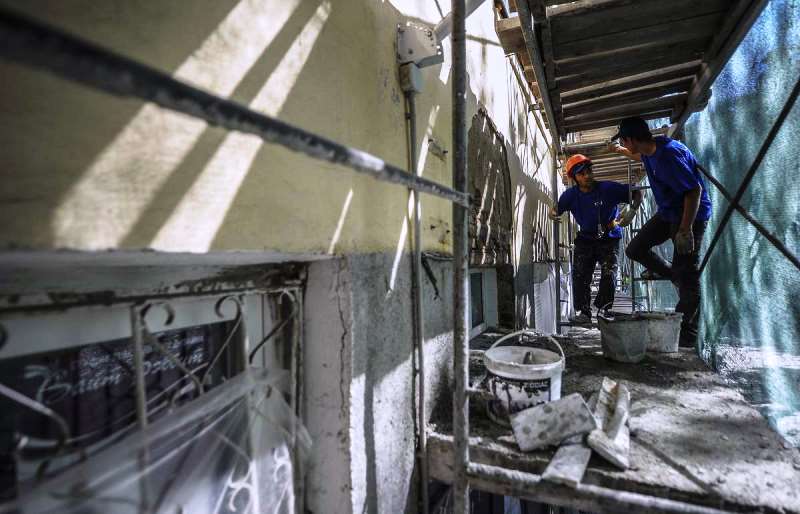
Who can avoid paying for major repairs?

- Owners of residential premises in houses that are recognized as dilapidated or in disrepair and subject to demolition;
- Owners of apartments in new buildings. Depending on regional legislation, happy owners of newly built apartments may not pay contributions to the Capital Repair Fund for three to five years.
- Apartment owners who voluntarily increased contributions and by a certain point had already reached the minimum size of the residential building stock;
- Tenants of municipal residential premises living under a social tenancy agreement;
- Owners of apartments in buildings that are subject to seizure for state needs;
- Heroes of the USSR and the Russian Federation, holders of the Order of Glory, and members of their families after their death;
- Heroes of Labor of the USSR and the Russian Federation, holders of the Order of Labor Glory and members of their families after their death.
What work is included in the list of regional overhaul programs:
- repair of common premises and equipment - basements, attics, roofs, elevators;
- renovation of facades;
- foundation restoration;
- reconstruction of utility systems - sewerage, water supply, heating and lighting.
The minimum payment amount is calculated based on the norm for 1 sq.m. housing and is determined by local legislation. According to the homeowners, it can be increased (if they wish to speed up the collection of the necessary funds). Residents who ignore their obligation to pay contributions to the FKR risk eventually receiving a court notice to pay the debt and penalties accrued on it.

The Housing Code identifies several categories of housing, the owners of which are exempt from this additional burden:
- houses that are municipally owned - the responsibility for carrying out major repairs in this situation falls on the municipal owner;
- dilapidated houses - even if the residents paid contributions to the FKR, from the moment the act on the unsuitability of the building for habitation is drawn up, they are released from this obligation, and the funds they contributed must be returned;
- houses, the land under which is subject to seizure for municipal needs.
Do residents of new buildings ? Legislation allows new residents not to contribute to the FCR for a certain period of time. The exact period is determined by local authorities - as a rule, it does not exceed five years. However, the opposite is not prohibited: members of the HOA can voluntarily accumulate funds for future repairs in their special account with the regional operator.
For those who want to know how to legally avoid paying for major repairs, the instructions in the next section will help determine whether you are entitled to a benefit.
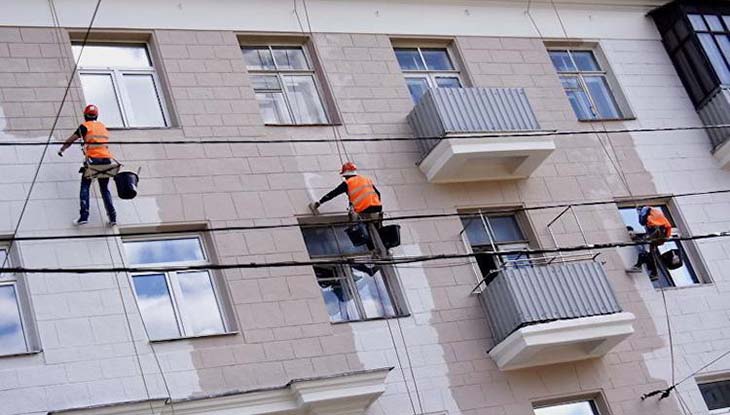
Categories of beneficiaries for payment of contributions to the capital repair fund
Preferential conditions for certain categories of citizens are also established at the regional level. The size of the benefit and the list of beneficiaries is formed at the discretion of the authorities of the Subject of the Federation. In most cases, benefits for paying contributions (refund of part and full amount paid) are available to the following categories of citizens:
- Veterans and disabled people of the Great Patriotic War;
- Disabled people of groups 1 and 2, as well as families with disabled children;
- Non-working pensioners over 70 years of age are entitled to compensation of 50% of the contribution;
- Pensioners over 80 years of age are compensated for the entire contribution amount;
- Combat veterans, home front workers, former minor prisoners of fascist concentration camps, liquidators of the Chernobyl nuclear power plant accident and other categories of citizens also have the right to compensation for part of the payment to the capital repair fund.
Check the exact list of beneficiaries at the social security institution at your place of residence.
When paying contributions, keep in mind that benefits are of a declarative nature; to receive them, you also need to contact the territorial social security authorities.
The State Duma decided to cancel the exemption of pensioners from paying for major repairs
By the end of the week, the State Duma will pass a law that will allow regions to compensate 100% of the contribution for major repairs to pensioners over 80 years of age living alone and 50% of the contribution to pensioners over 70 years of age living alone. Some categories of disabled people will also receive benefits. But first you will have to pay off your housing and communal services debts.
The bill was introduced by a group of deputies from SR. Initially, it was only about granting subjects of the Russian Federation the right to “exempt from paying contributions for major repairs pensioners living alone who have reached the age of 80, and families consisting only of pensioners living together, at least one of whom has reached the age of 80.” The document was adopted in the first reading on December 4, 2020, after prominent United Russia members became its co-authors and received government consent to extend benefits to other categories of citizens.
By the second reading the bill had changed significantly. Its first part still talks about the right, and not the obligation, of regions to use their laws to ease the burden of paying for major repairs for older pensioners. But now they promise not an exemption from fees, but “compensation for expenses” to home owners: if a pensioner over 80 years of age lives alone - in the amount of 100%, and if a pensioner over 70 years of age lives alone - 50%. Moreover, only non-working pensioners will be entitled to compensation.
A family of non-working pensioners of any age also has a chance for a benefit: if one of them, the owner of the premises, is over 80 years old - in the amount of 100%, and if one of them, the owner, is over 70 years old - in the amount of 50%.
Compensation will be calculated based on the minimum contribution per square meter of area established in a given constituent entity of the Russian Federation (in Moscow - 15 rubles) and the “size of the regional standard for the normative area of residential premises” used to calculate subsidies for housing and communal services. In Moscow, for example, the standard is 33 square meters. m for a person living alone. That is, if a single pensioner over 80 years old has a housing area of more than 33 square meters. m, for the “surplus” he will pay at full rate.
If regions have the right, but no obligation, to introduce compensation, where is the guarantee that they will do this? Deputy The head of the Housing and Communal Services Committee, Pavel Kachkaev (“ER”), assured MK that the guarantee is about 5 billion rubles included in the 2020 budget to provide the benefits listed in the law.
Disabled people of the first and second groups, disabled children and parents of disabled children will also receive the right to compensation of no more than 50% of the contribution, calculated according to the same rules. This benefit does not depend on the will of regional authorities, although some of them introduced it themselves, without waiting for the “go-ahead” from above.
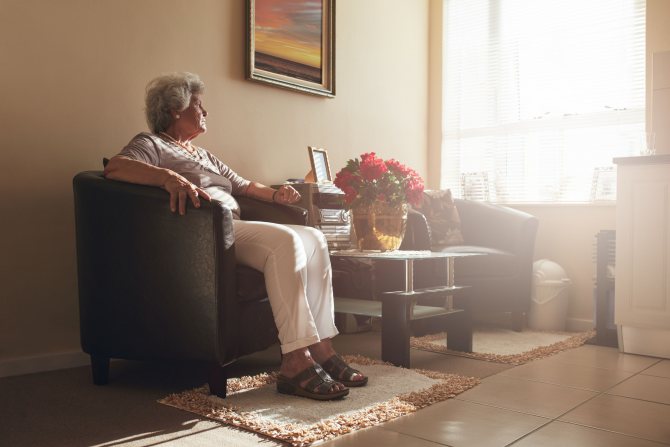
If a single pensioner over 80 years old has a housing area of more than 33 square meters. m, for the “surplus” he will pay at full rate
To receive subsidies for housing and communal services, you need to put a lot of effort into collecting various certificates, and we are talking about very elderly, lonely and sick people... Mr. Kachkaev believes that in order to receive compensation for fees for major repairs, the matter will be limited to one or two certificates - compensation does not depend on income level, and data on people living alone is available in the EIRC, and on non-working pensioners and their age - in Pence
ion fund.
In fact, no one knows how many documents will have to be collected in order to obtain the right to compensation: the regions still have to adopt their own regulations in this regard. Since the law must come into force on January 1, 2020, there is very little time left for this.
And one more important point: as in the case of a subsidy for housing and communal services, “compensation will be provided only if the recipient has no debts to pay for housing and communal services,” explained Mr. Kachkaev. This means that those pensioners who boycotted the contribution for major repairs will still have to pay for six months and then pay regularly.
According to the Housing and Communal Services Committee, there are about 2.7 million pensioners in the country of those ages who will be entitled to compensation. And there are 8,432 people with disabilities from the above categories.







